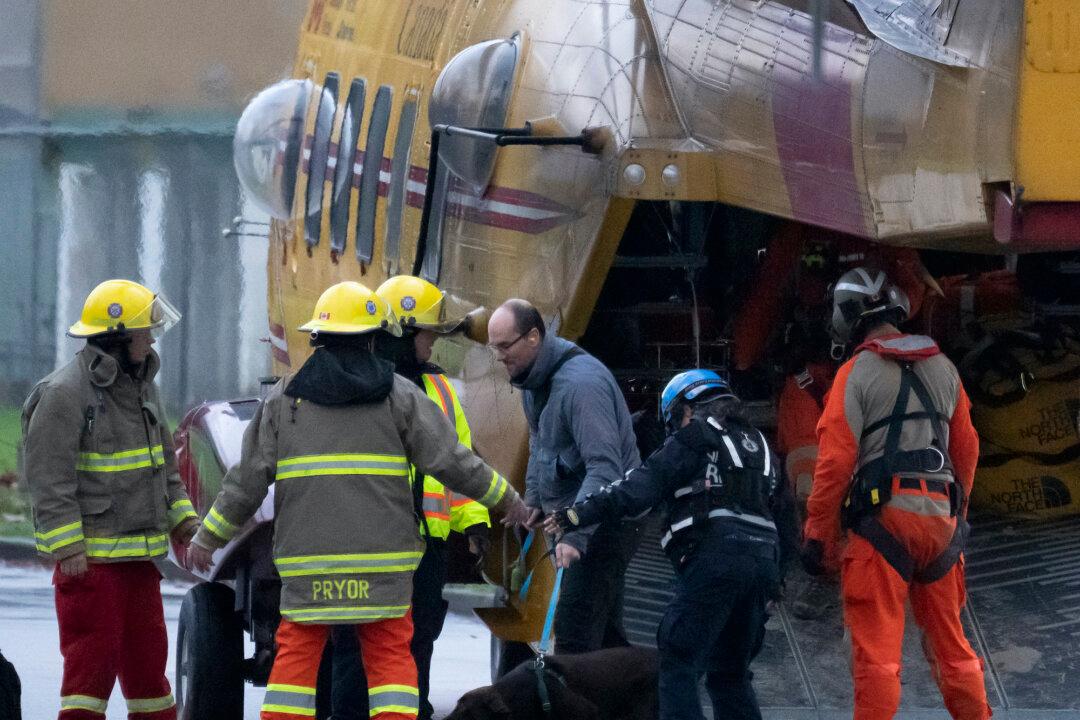SURREY, British Columbia—Extreme weather continues to plague British Columbia as high winds, flooding, and mudslides lash the province for a third day, choking travel in and forcing evacuations, although the rains are expected to subside on Nov. 16.
Traffic in and out of Greater Vancouver is at a standstill as mudslides have struck five major highways outside of the region’s Fraser Valley.





